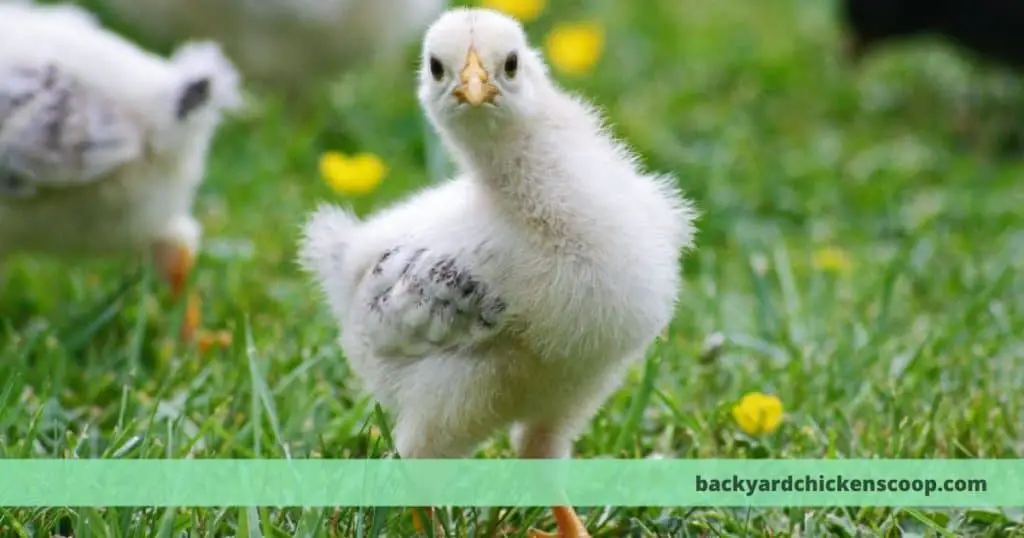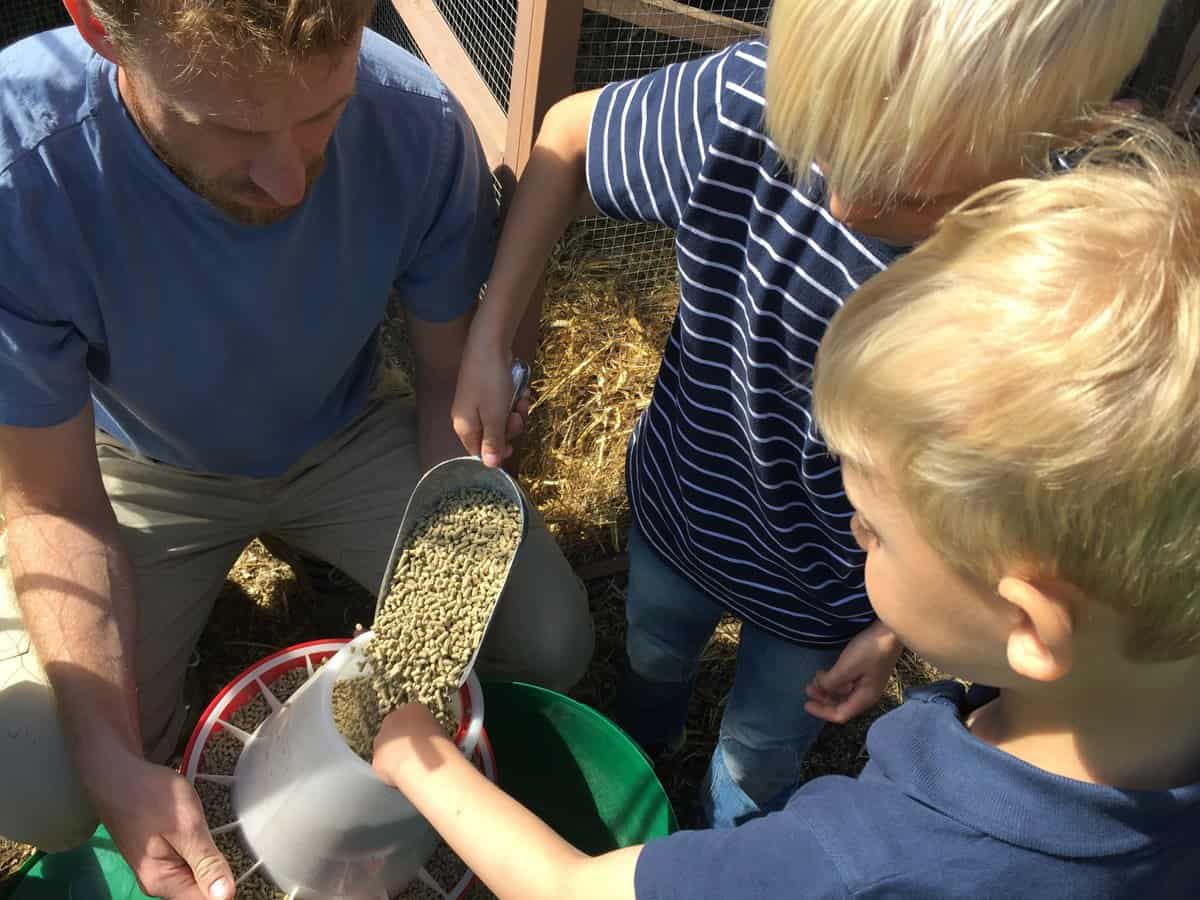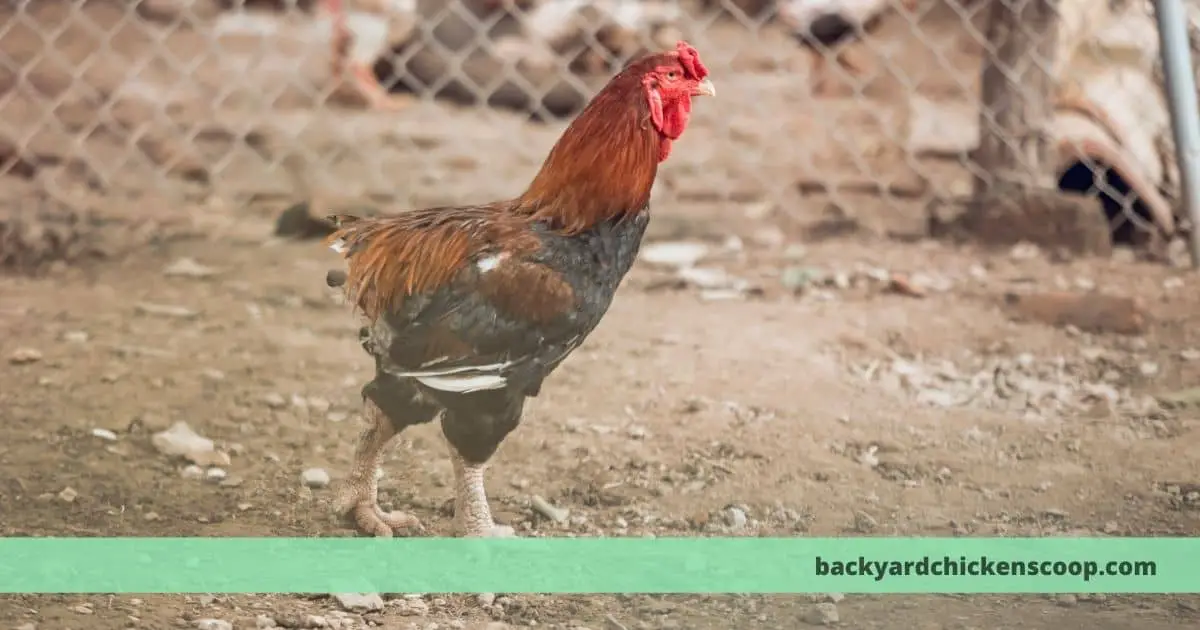So I asked our veterinarian: How long do chickens live? And how can we keep them for longer? Keeping chickens in the backyard and making them part of the family is becoming more and more popular. However, like with all pets, the hardest part is knowing that one day you will have to say goodbye. Therefore, it really helps to know how long you can expect your beloved chickens to live and how to help them as much as you can. Read on for all the information you need on this topic.
Key Take-Aways
- Lifespan: Backyard chickens can live anywhere from five to ten years on average, with some exceptional cases reaching up to sixteen years.
- Factors Affecting Lifespan: Several factors influence a chicken’s lifespan, including nutrition, disease, environment, medical care, and genetics.
- Care and Maintenance: Providing a healthy diet, regular medical checks, a clean and safe environment, and appropriate veterinary care can contribute to a chicken’s overall well-being and longevity.
- End of Life: Chickens can die of old age, and as they age, they may experience weight loss, lethargy, and declining health. Culling sick or non-productive hens is necessary for the safety and well-being of the flock.
How long do backyard chickens live?
This may seem like a simple question, but it is one that evokes a less simple answer. You see, there are several factors that will affect the life span of a backyard chicken, so let’s take a look at what these are and what the veterinarian said.
Nutrition affects lifespan
Of course, like with all living things, the better the diet, the healthier the animal. Diet and nutrition for chickens have greatly improved, and chickens are no longer expected to live off scraps or poor-quality grains.
Nowadays, there is a range of options available when it comes to chicken feed, all of which are high in nutrients and protein, keeping your chickens strong and well-fed. You can even buy treats for chickens as you would a cat or a dog.
However, like with all animals, overfeeding will also cause health problems, so ensure that you don’t even up go the other way, and cause your chickens to suffer complications by being overweight.
Disease
Chickens can be prone to several diseases and ailments due to worms, lice, and mites, and each comes with its own problem. For chickens, being infected by worms can be severe enough to kill them. Lice cause damage to their skin and feathers, and mites can suck enough blood to leave your chicken with anaemia.
However, a vet can treat all of these problems, and the quicker you notice the health problem, the easier it will be to treat and be as successful as possible. It is a good idea to regularly check the condition of each of your chickens, at least once a week, this includes checking their skin, and feathers, and monitoring their behaviour.
Unfortunately, with chickens living outside, it is sometimes all too easy for them to be struck with a disease. Mites and lice live on other animals that may visit your backyard, and worms are in the faecal matter of other birds that could easily end up over your backyard. Chickens can’t be protected from everything, but with regular checks, you can help them get the help they need if necessary.
Additionally, there are several viral diseases that affect chickens such as a strain of herpes or retrovirus that are not as well understood as the ones mentioned above. But, again, with regular checks, you can get the best treatment available, and give your chicken the best chance at being healthy again.
Environment influences longevity
It will come as no surprise that a chicken that is kept in a clean, warm, and ambient environment will flourish more than one that has to live in poor conditions. As long as your chicken doesn’t have to suffer the stress of fending for themselves in a cold, damp, or similar environment, they will be able to live longer.
As well as giving your chickens the basics in their environment, it is also a good idea to make sure your yard is safe from predators or any larger animal that may mistakenly hurt them. And if you have a coop or some form of housing, find the type that will keep them shielded in all weather.
You can buy coops that stay cool in summer and warm in winter, and this is exactly the kind you need to keep the health of your chickens optimal.
Medical Care
You may think that if your chicken needs medical attention you can just drive to your local vet, well, unfortunately, this is not always the case. While vets are highly trained in the treatment of most animals, it doesn’t include all animals, and you might struggle to find one who can efficiently deal with poultry.
Since keeping chickens and other poultry started to become more common, many vets are now improving their knowledge and skills to help when needed, but it is always best to find a vet who has specific knowledge in helping birds and poultry so that you will receive the distinct care required for your chickens.
Genetics
There is a well-known history of manipulated breeding with poultry; hybrids are created to maximize egg-laying abilities, but in turn, this can cause health problems. When you rescue or adopt your chicken(s) you may not be aware of its genetic history, but if the place where you are getting them from can tell you, this will be able to set your expectations with life expectancy.
There is a good chance, that your chicken(s) doesn’t have a poor genetic history, but if they do, then you can expect your chicken(s) to not live as long as one whose history doesn’t include manipulation or inbreeding.
Overall, if we take an average, you can expect a well-cared female chicken to have a lifespan of between eight and ten years and a male of between five and eight years.
Although the world record for the lifespan of a chicken currently stands at sixteen years old, so if you are fortunate enough, you can spend a great number of years with your backyard family.
What is the average lifespan of a laying hen?
So taking everything into consideration, the most pressing question for our vet is still: How long do chickens live? Luckily she came through for us once again.
The average lifespan of a laying hen is estimated to be between eight and ten years. Because there are so many environmental, medical, and nutritional factors involved, it is hard for anyone to give a definitive answer.
But eight to ten is the general rule if the hen is kept in good condition, with a healthy diet, and is able to receive medical care when necessary.
Even though a laying hen can live to be as old as ten, or even longer they won’t lay eggs for this many years. At around six months old the hen with start laying eggs, and will continue to do so until around five to seven years old. Although towards the end of their laying years, egg frequency will decrease a lot and is perfectly normal
I am sure you have come here looking for a specific number, ultimately, it is impossible to say for sure. With chickens, there are a large number of factors that affect their lifespan, including living conditions, diet, disease, genetics, and medical care (see the top of the article for an in-depth look at each factor).
If we look at an average number, then backyard chickens can live anywhere from five to ten years, although currently the record for the oldest chicken is set at sixteen years.
So, it is not impossible for your backyard chickens to surpass the average age and live long fruitful lives with you. But, of course, being in the safety and comfort of your backyard will give them the best chance possible at living for a long period of time.
Chicken Health Mastery
Click to See Our Complete Checklist for Ensuring a Healthy, Happy Flock
…have you missed anything?
How can you tell how old a chicken is?
If the place where you have obtained your chicken isn’t able to tell you the roughage of the chicken, then it is important that you are able to make an educated guess. Knowing a chicken’s age is essential to know what diet to feed them, what care they need, and even to know the frequency of eggs you can expect and, therefore, ascertain if there is a problem.

Estimating the age of your chicken isn’t always easy, there is not an exact science behind it, and if you are really unsure, then it may be worth seeing a vet for advice. However, the basics of what you should be looking out for to determine age are below.
| Age Range | Developmental Milestones |
|---|---|
| Zero to One Week | Featherless, tiny, and immobile chicks. |
| One to Six Weeks | Rare egg-laying, chickens enter old age. Rougher and bigger scales on feet, decreased feather colours, weakened beaks, and declining overall health. |
| Four to Six Months | Chicks reach full maturity. Females start egg-laying, and males develop leg spurs. |
| Six Months to 2 Years | Male feathers become colourful, and rooster tail forms. Females’ pelvic bones widen slightly. |
| Three to Four Years | Decreased egg production, larger eggs. Males become calmer and less active. |
| Five Years Plus | Rare egg-laying, chickens enter old age. Rougher and bigger scales on feet, decreased feather colors, weakened beaks, and declining overall health. |
Zero to One Week
Of course, at this stage, it will be obvious that the chick is this young, as well as being tiny and barely able to move, they will also be featherless.
One to Six Weeks
During this period, the feathers will start to grow in and after six weeks the process should be complete. This is also the period of time that you will be able to tell the sex of your chicken. The male’s comb will be far redder than a female’s, and male chickens will often be taller at this point.
Four to six months
Over this month, a male’s feathers will become very colourful and the infamous rooster tail will be clear. For females, their pelvic bones will start to become wider but usually not enough for egg-laying.
Six months to 2 years
At this age, all chickens now look fully mature, they are officially adults.
A female’s pelvic bones are now wide enough, and the egg-laying process will begin. You can expect around one egg a day for the first couple of years.
For males, you will notice spurs on the back of their legs, the length of these will increase with age, getting to be about an inch long once they are two years old.
Three to four years
By this stage, hens will lay eggs less frequently, but their eggs will be larger than normal. The size of the eggs is a great indicator of age in a female chicken. Males will start t quieten down at this point, their hormones aren’t as strong, and they won’t grow as much, or mate as much as before.
Five years plus
At this point, hens will rarely lay eggs, and a rooster will be very quiet and slow. Most chickens can only expect to live for a couple more years after this, so they are effectively in old age. You will also notice a chicken’s scales on its feet will become rougher and bigger with age. Feather colours may decrease, along with beak strength, and overall health will start to deteriorate.
Do chickens die of old age?
Yes! Although it may sometimes seem like there are a hundred different factors that may end a chicken’s life too soon, chickens do indeed die of old age. If your chickens have reached a point of old age, then you should take comfort in knowing that because of you they were able to have the longest life possible.
Why do old chickens die?
Old chickens die for the same reasons that any animal or even person dies of old age, their body is weak and they no longer have the strength to go on, they have lived their life and it is time to let go. If your chicken dies of old age, you will notice they are losing weight and becoming more lethargic in their movements.
Unfortunately, when this happens there isn’t anything you can do other than let nature takes its course. A chicken dying of old age will eventually pass peacefully in its sleep.
At this point, I’m sure you need the free Chicken Disease Cheat Sheet
…
When to cull hens?
The process of culling hens means removing any that are sick, injured or inferior in some way. And if possible, you should do it as regularly as needed. As awful as it might feel, if you leave hens that are sick, this could put your whole flock at risk and you could end up with a lot of dick chickens rather than just one. Culling hens also means there is more space for the others, and more food and water available as well.
The timing of when to cull hens can vary depending on the specific situation.
Hens that are sick, injured, or significantly inferior should be culled as soon as their condition is identified. Similarly, if you are raising hens for egg production, non-productive hens that rarely lay eggs can be culled to optimize resources for the productive ones.
It is important to regularly assess the health and productivity of your flock and make culling decisions accordingly.
If you are raising hens for the purpose of egg production, then culling the hens that don’t lay eggs, or lay eggs very infrequently, again means there are more space and resources available for the hens that are laying eggs on a regular basis.
Culling hens is essential to keep the flock safe and in tip-top shape.
As much as you wish it, you cannot make chickens live forever but with the right care and environment, you can certainly help your backyard chickens have the kind of life they deserve.
I’d like to acknowledge our skilled vet for answering all my questions for this article. She’s awesome!


